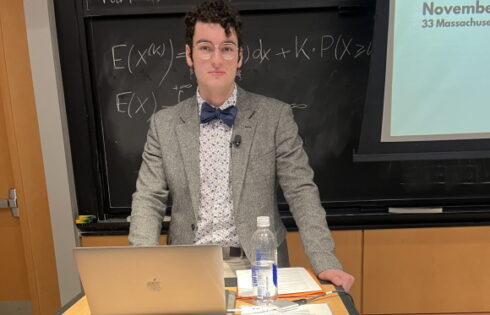
UCLA Law Prof. Eugene Volokh, an expert on First Amendment jurisprudence and Washington Post columnist, has closely examined the legal arguments made by the Feminist Majority Foundation and allies in their quest to shut down Yik Yak on college campuses.
Calling the feminists’ push to eradicate boorish speech on the anonymous social-messaging app “another example of today’s Anti-Free Speech Movement for American universities,” Volokh finds their arguments contrary to well-established legal precedents.
In their letter to the Department of Education’s Office for Civil Rights, the feminists argued (via Volokh’s context):
“Once a verbal act ‘materially and substantially interfere[s] with the requirements of appropriate discipline in the operation of the school,’” the coalition says — quoting the Tinker v. Des Moines Indep. School Dist. standard applicable to K-12 education — “institutions may regulate or restrict student speech.”
Subsequent rulings have made crystal clear that Tinker has no bearing on college speech, Volokh says, citing 1972’s Healy:
[T]he precedents of this Court leave no room for the view that, because of the acknowledged need for order, First Amendment protections should apply with less force on college campuses than in the community at large.
Content-neutral “time, place and manner” restrictions were approved in a subsequent ruling, and even in a recent ruling that approved colleges’ attacks on freedom of association in campus groups, the court upheld those groups’ rights to “express any viewpoint they wish — including a discriminatory one.”
Volokh said he’s planning a followup post on the “retaliation” claim against a university president for rebuking the Feminist Majority Foundation for its “unsubstantiated allegations” in a female student’s murder.
Like The College Fix on Facebook / Follow us on Twitter
IMAGE: Shutterstock






Please join the conversation about our stories on Facebook, Twitter, Instagram, Reddit, MeWe, Rumble, Gab, Minds and Gettr.